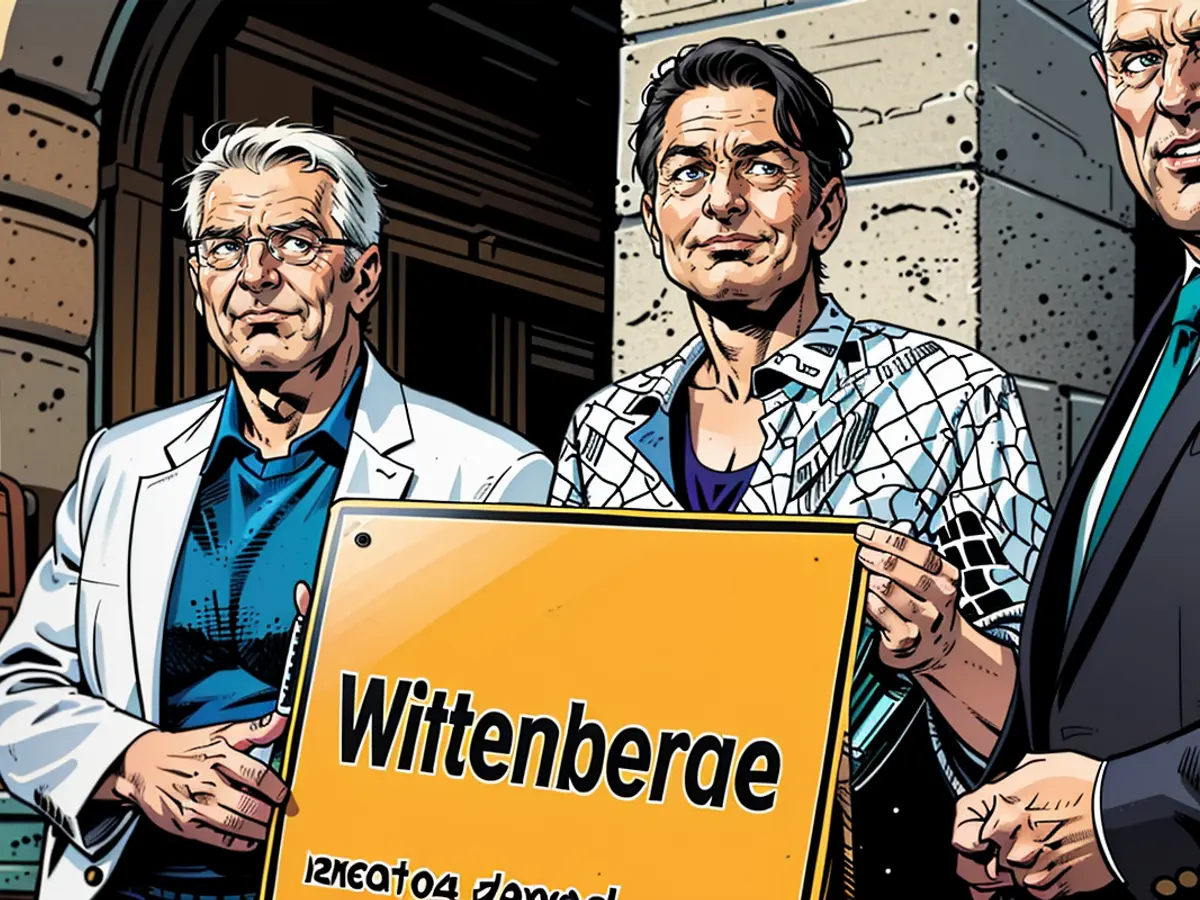location in Wittenberge - The Minister of Agriculture notifies the Smalltown Academy
The city Wittenberge (Landkreis Prignitz) has received two million Euros for the establishment of the federal Small City Academy. Federal Construction Minister Klara Geywitz (SPD) handed over the corresponding contribution notice in the city in the northwest of Brandenburg. Wittenberge was chosen as the location of the academy's business office in February among 44 applicants, from which the activities of the academy are to be coordinated.
The academy is to be the voice for small towns
Geywitz stated during the handover at the Wittenberg Town Hall, "Our goal is to create equal living conditions throughout Germany." The public focus is often too much on large cities. There are over 2100 small towns in Germany with around 24 million inhabitants. "The Small City Academy is to be the voice for the needs of these small towns," emphasized Geywitz.
Small towns, that is, towns with 5000 to 20,000 inhabitants, face the same challenges as other communities, such as demographic change, climate adaptation, mobility and the future of inner cities, or the labor shortage. In the medium-term financial planning of the Federal Government, the city of Wittenberge is to receive annually two million Euros for the construction of the academy until 2028.
The Federal Government has played a midwife role in the Small City Academy, said Geywitz. However, it is an event of the communal family. The academy is to represent the requirements and needs of small towns vis-à-vis the Federal Government. Communities are also to network more strongly with each other and exchange best practices.
Small City Congress planned in the coming Spring
Brandenburg's Infrastructure Minister Rainer Genilke (CDU) stated, "In Brandenburg, the structure is shaped by small towns." Wittenberge is an ideal location for the federal Small City Academy as a site, among other things, because the city is nearly centrally located between the two metropolises of Berlin and Hamburg. The infrastructure and economic development will receive a new push through the presence of the academy, emphasized the minister. "I believe that we will build something here with the support of the Federal Government that will shine beyond Prignitz and Brandenburg."
The head of the business office is Siw Foge, who has been active at the Technologie- und Gewerbezentrum Prignitz in Wittenberge until July 1st. Her goal is to first put together a team, build organizational structures, and promote the academy throughout Germany. A performance is planned at the Federal Congress for National Urban Development Policy in Heidelberg in September. In addition, a Small City Congress is being prepared in Wittenberge in the Spring of 2025, said Foge.
- The Small City Academy will be based in Wittenberge, which is located in the Prignitz District, a region in the northwest of Brandenburg, Germany.
- Clara Geywitz, the Federal Construction Minister from the SDP party, believes that the academy's focus should be on addressing the needs and challenges faced by small towns in Germany, which number over 2100 with around 24 million inhabitants.
- The Federal Government is providing annual funding of two million Euros to Wittenberge for the construction and establishment of the academy, with the goal of creating equal living conditions throughout Germany.
- Rainer Genilke, Brandenburg's Infrastructure Minister, has praised Wittenberge as an ideal location for the academy due to its central location between Berlin and Hamburg and its potential to boost infrastructure and economic development in the area.
- Siw Foge, who will be heading the academy's business office, has stated that her initial priorities will be to build a team, establish organizational structures, and promote the academy to a wider audience across Germany.
- In addition to participating in the Federal Congress for National Urban Development Policy in Heidelberg in September, the academy is also planning to host a Small City Congress in Wittenberge in the Spring of 2025.








